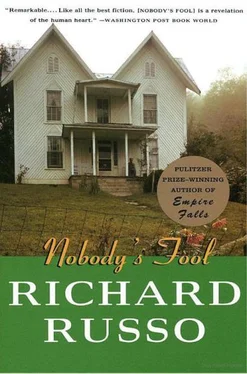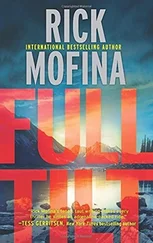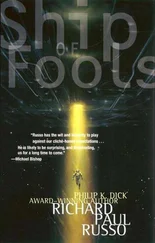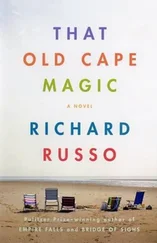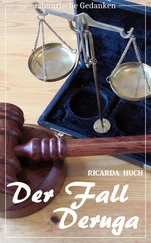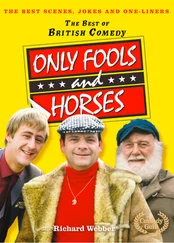“Yes,” she said, though he didn’t often.
“Well, I won’t today,” he assured her. “How come you aren’t going out to dinner with The Bank?”
Miss Beryl smiled, as she always did when Sully referred to Clive Jr. this way, and it occurred to her, not for the first time, that those who thought of stupid people as literal were dead wrong. Some of the least gifted of her eighth-graders had always had a gift for colorful metaphor. It was literal truth they couldn’t grasp, and so it was with Sully. He had been among the first students she’d ever taught in North Bath, and his IQ tests had revealed a host of aptitudes that the boy himself appeared bent on contradicting. Throughout his life a case study underachiever, Sully — people still remarked — was nobody’s fool, a phrase that Sully no doubt appreciated without ever sensing its literal application — that at sixty, he was divorced from his own wife, carrying on halfheartedly with another man’s, estranged from his son, devoid of self-knowledge, badly crippled and virtually unemployable — all of which he stubbornly confused with independence.
“I was invited by The Bank, but I prefer to pay my way,” Miss Beryl told him, a small lie. Clive Jr. had called last week to tell her he’d be out of town for the holiday, alluding to his planned absence cryptically, hoping, perhaps, to pique Miss Beryl’s curiosity, a tactic he might have known was doomed to failure. Miss Beryl had her share of natural curiosity, but she resented having it manipulated so transparently. The mere fact that Clive Jr. solicited her interest suggested to her the opposite response was called for. “It’s no fun eating with a financial institution,” she added.
Sully grinned down at her. “We wear the chains we forge in life, old girl.”
Miss Beryl blinked. “Who’d have thunk it? A literary allusion from the lips of Donald Sullivan. I don’t suppose you remember who said that.”
“You did,” Sully reminded her. “All through eighth grade.”
The first thing Sully saw when he stepped outside onto the large porch he shared with his landlady was Rub Squeers tramping up the street through the snow. At just over five feet tall, Rub was powerfully built, and at the moment he was staring at his feet as he walked, trying, Sully suspected, to pretend that this meeting was a coincidence. Sully had known Rub too long to believe in this particular coincidence. He could tell by the way the young man was carrying his large head, like a medicine ball precariously balanced on his thick shoulders, that he was coming to see Sully and that he wanted to borrow money. In fact, Sully could tell just by looking at him how much Rub wanted (twenty dollars), how much he’d settle for (ten), and how long it would take for them to arrive at this figure (thirty minutes).
“Hello, dumbbell,” Sully called. “Don’t you own any boots?”
Rub looked up and feigned surprise. “Somewheres,” he said, looking down at his ruined black shoes. “How was I supposed to know it’d snow the day before Thanksgiving?”
“You’re supposed to be prepared,” Sully said, though he himself had led a life of studied unpreparedness. He put a work-booted foot up on the porch railing, tied its laces. “You’re just in time, actually,” he added. “Do this one for me.”
Rub climbed the steps, kneeled in the snow, tied the laces on Sully’s left boot.
“Leave some circulation,” Sully suggested. “My knee’s about the size of two already.”
Rub untied the boot, started over. “You look like you’re dressed for work, not school,” he observed. “You going back to work?”
“That’s the plan,” Sully said.
“You gonna hire me again?”
“Would you stop borrowing money if I did?”
“Sure,” Rub said, though he looked disappointed to have the subject of borrowing come up so negatively. His knees now sported large wet patches. “I miss us working,” Rub said. “I wisht we’d just start up again like before.”
“I’ll see if I can find us something,” Sully told him.
Rub was frowning now. “Old Lady Peoples is spying on us again,” he said, having noticed the front room curtains twitch. Rub was normally even-tempered, but he harbored a deep animosity toward Miss Beryl as a result of her attempts to educate him back in the eighth grade, some dozen years ago, the year before she’d retired. Whenever Rub saw her, his eyes got small and hard, his voice edgy and scared, as if he imagined that Miss Beryl were still capable of wielding absolute power over him. She was still paying attention to him, and he didn’t like people who paid attention. Rub himself seldom paid attention, and he considered inattention normal human behavior. Back in eighth grade Miss Beryl was always cracking her ruler on the edge of the desk in her English class, right after lunch when he was about to doze off, and barking, “Pay attention!” Sometimes she stared right at Rub and added, “You might learn something.” Rub still considered attentiveness hateful and exhausting and perverse. And since he knew no one in Bath more alert than Miss Beryl, there was no one he disliked more.
Sully couldn’t help grinning. “Let’s go have a cup of coffee before she comes out and warns me against bad companions.”
As they crossed the street where the snow had already begun to turn to slush and headed toward Hattie’s Lunch, Sully was surprised by an unexpected feeling of well-being he could find no rational justification for. The feeling was far too strong to ignore, though, so he decided to be grateful and enjoy it and not be troubled by the fact that throughout his life, such sudden sensations of well-being were often harbingers of impending catastrophe. They were, in fact, leading indicators of the approach of a condition that Sully had come to think of as a stupid streak, where everything he did would turn out wrong, where each wrong turn would be compounded by the next, where even smart moves would prove dumb in the particular circumstance, where thoughtlessness and careful consideration were guaranteed to arrive at the same end — disaster.
He generally suffered through about one stupid streak a year and was under the impression that this year’s was already in the books. But then again, maybe not. Or maybe this year he’d be awarded two. Maybe going back to work on an injured knee was the beginning of the granddaddy of all stupid streaks. He already knew that one of the things he had to look forward to today was everybody telling him he was stupid, he’d be better off to stay in school, collect his partial disability, let his knee heal completely and, since it wasn’t likely to heal completely, let Wirf, his lawyer, work on getting him his full disability. What kind of sense could it possibly make for him to go back to work on a busted, arthritic knee?
Some sort of sense, obviously, Sully concluded, or he wouldn’t be feeling so good about doing it. Of course, he might feel differently later, after a day’s hard work, but right this minute, as he limped down Upper Main in the direction of Hattie’s and coffee, half listening to Rub complain about Miss Beryl, going back to work made more sense to him than driving over to the community college north of Schuyler Springs, where he had, for the last few months, been taking classes with teenagers and feeling foolish. The only class he enjoyed was philosophy, the course he’d been forced to sign up for when one of the classes he needed was full, and the philosophy class, ironically, was the one that made him feel the most foolish. It was taught by a young professor with a small body and a massive head who would have looked like Rub except for a crop of unruly black hair. The young professor seemed bent on disproving everything in the world, one thing at a time. First he disproved things like chairs and trees that fell in the forest, and then he moved on to concepts like cause and effect and, most recently, free will. Sully’d gotten a kick out of it, watching everything disappear but the bad grades he got along with all the other students. If going back to work turned out okay, philosophy was the only class he’d miss. In fact, he already felt bad about quitting with only three weeks left in the term and a few things left, like God and love, to be disproved. He wasn’t sure how the young professor meant to make these disappear with the rest, but Sully was sure he’d find a way.
Читать дальше
